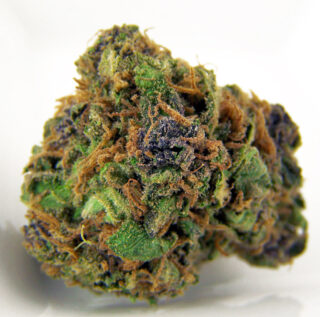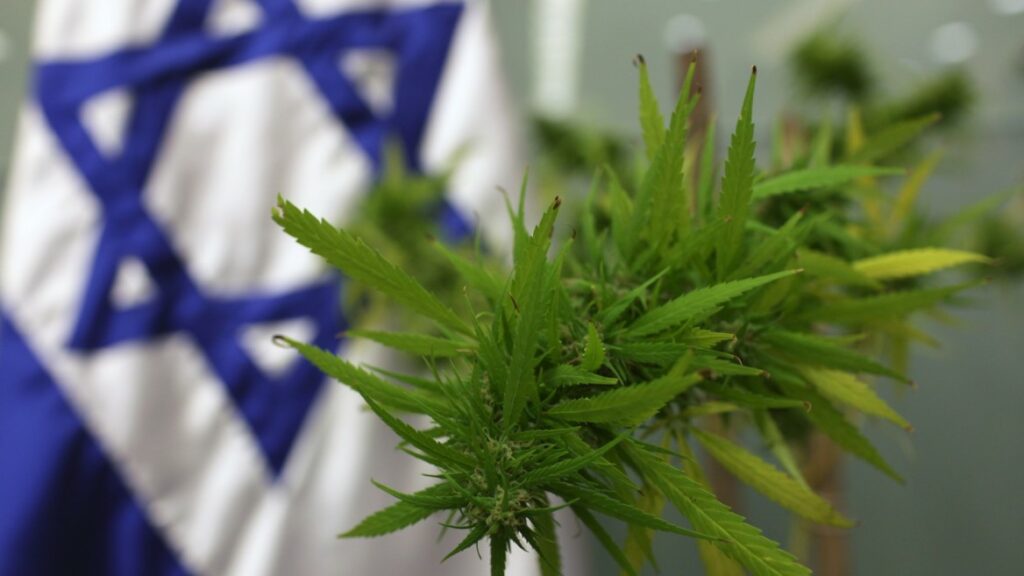

Israel Medical Cannabis News - Sept 2019
“The cannabis bubble has burst,” Dr. Tamir Gedo, the CEO of Breath of Life Pharma, admitted over the weekend after the Israeli medical marijuana firm’s plans for an initial public offering in Canada failed. Last May BOL had been eyeing an IPO at a valuation of over $1 billion.
A year ago, the medical cannabis sector in Israel was riding high. Companies like InterCure were appointing celebrities like former prime minister Ehud Barak to top jobs, while investors were bidding up share prices into the hundreds of millions of shekels amid hopes that the government would clear the way for exports. Israel has years of leading marijuana research under its belt and all it needed were markets to sell its products to.
But a year later things haven’t worked out as expected. The Health Ministry’s medical marijuana unit failed to prevent criminal groups from getting hold of marijuana grown on local farms. In recent months facilities run by the companies Better and Ilan Bio suffered break-ins and the loss of seedlings.
Better’s plans to merge into a Tel Aviv Stock Exchange-traded shell company collapsed and the CEOs of the two companies involved stepped down. Exports have yet to materialize and a shortage of medical marijuana for the local market has emerged as companies struggle to meet the Health Ministry’s strict new standards. Few companies are generating revenues.
The Israeli industry isn’t the only one to suffer. The share price for Canada’s Tilray has slumped from $143 a year ago to $32 today. Last month it reported second-quarter losses nearly tripled from a year ago to more than $35.1 million. Cronos Group’s shares are down to $12 from $22 a year ago and Aurora’s have fallen from $12 to $5.90
Here is the state of play for four of Israel’s biggest medical marijuana companies by market capitalization.
InterCure enjoys a market cap of 693 million shekels ($197 million), by far the largest of Israel’s medical marijuana companies. But its shares are down 55% from their high of 14.20 shekels last February, closing at 6.39 on Sunday.
InterCure, which has a range of biomedical businesses, runs its cannabis operations through its Canndoc unit, which had first-half revenues of just 5.18 million shekels and profits of 4.78 million.
The company operates a cannabis farm in northern Israel, which it has been working to upgrade and expand. However, the improvements have been delayed. Meanwhile, a second farm in the south has not gotten Health Ministry approval to begin operations. In Canada, it has a processing plant that is awaiting local approvals to begin operations. Meanwhile, however, the company has distribution agreements for Germany, the Netherlands and Canada.
InterCure has 51 million shekels in cash, which it plans to use to fund nine clinical studies of its efficacy in helping with epilepsy, fibromyalgia, neuropathic pain and other ailments. Initial results from these studies are expected to be reported during the course of 2020.
Cannbit, the No. 2 company by virtue of its 230.5 million market cap, has been awaiting Israeli Health Ministry approval to begin operations. Meantime, its shares have plunged 66%, from 27.70 in March to 9.35 on Sunday.
Cannbit isn’t sitting still. It has 58.7 million shekels in cash to fund development and in May signed a deal to sell six tons of cannabis to Panaxia, Israel’s biggest producer and distributor of medical marijuana, over three years starting in 2020. That could yield it 30 million shekels in revenues,
In addition, Cannbit has an agreement with Herzilya Medical Center for research and development services and another agreement with an unidentified cosmetics company to develop cannabis-based cosmetics. It’s also investing $400,000 in research being conducted by Prof. Raphael Mechoulam, the father of Israeli medical marijuana research, to investigate synthetic cannabinoids for treating cancer. The research is in its early stages.
The company lost 3.3 million shekels in the first half of this year, leaving it with accumulated losses of 24.5 million.
Together, with a market cap of 167 million shekels, is perhaps in the worst shape of the four. Its auditors attached a “going concern” warning to its second-quarter financial report, saying it didn’t have the money to move forward with its business plan for the next 12 months, Together has negative equity of 20 million shekels and reported a first-half loss of 9.2 million. It has just 4.9 million in cash on hand.
The company has developed a farm in Uganda for marijuana and has harvested 100 kilograms to date and planted an additional 2.5 acres. The plan is to export the harvest to Europe and it has a contract to sell 12.5 tons to a German company.
Together’s problem is that its cannabis processing plant hasn’t gotten European approvals. The company is trying to get around that obstacle in the meantime by negotiating a deal with a European processor that has all the licenses. Together has bought a licensed German cannabis importer and distributor.
Together is also eyeing the giant Chinese market, but that will take some time as Beijing hasn’t approved marijuana for medical use. The company signed a memorandum of understanding in July with an Israeli company owned by a Chinese corporation to enter the Chinese market.
With a 163 million-shekel market cap, Pharmocann generated 8.9 million shekels in medical marijuana revenues in the first half. But it ended the six months with a 47.6 million loss due to the costs of listing on the TASE through a merger with the shell company Compression Systems. Its shares are down 47% from a February 12 high of 4.40 shekels.
Pharmocann claims it controls 15% of Israel’s medical marijuana market. It has plans to enter the Indian market and has signed a MOU with the Indian company PureMagic to develop food supplements, cosmetics and other products using cannabis. The two will form a joint venture to get a license to grow cannabis in India.